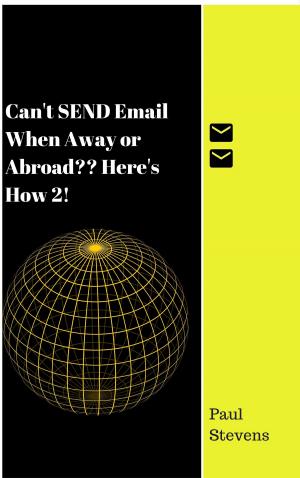Kindle Publishing: The # 1 Killer Formatting Secret
Nonfiction, Reference & Language, Language Arts, Writing & Publishing, Publishing| Author: | Paul Stevens | ISBN: | 9781301062614 |
| Publisher: | Paul Stevens | Publication: | April 16, 2013 |
| Imprint: | Smashwords Edition | Language: | English |
| Author: | Paul Stevens |
| ISBN: | 9781301062614 |
| Publisher: | Paul Stevens |
| Publication: | April 16, 2013 |
| Imprint: | Smashwords Edition |
| Language: | English |
If you intend using Microsoft Word to prepare your document this is for you. Now here’s the thing. Word is actually a single computer program. But it is a very complex program with hundreds and hundreds of options and their possible combinations. And what are most of us authors? We probably haven’t had special Word training. No, what we do is to open Word and start typing. Sure we correct errors in spelling and syntax but basically we just default to whatever the current settings are. If you print the page out it looks great, so why shouldn’t it go onto Kindle just like that? In my case the Word document was set up in block format (in which the first word of a paragraph is not indented) and it introduced an extra line after each paragraph and it looked terrible on Kindle…too much white space between paragraphs. Search as I did I could not find an answer anywhere of how to suppress this additional spacing. At this stage I had produced about 12 titles on Kindle. I have had to go back and laboriously delete every additional superfluous line, and then republish the documents. In this short article I am going to give you the #1 secret to perfect formatting on Kindle for a Word document. You can buy a 100 page book or you can solve this issue in the next minute or two. If only I could have bought this article when I started! It’s taken me 10 months to find this out, but that’s maybe because I’m stupid. And what’s more I’ve waded through several books on formatting and never got a 100% answer to this. Well here it is and it’s all you’ll ever really need and it’s all set out in 1000 words. It is Word 2003 specific but the entered values are equally relevant to Word 2007 except that the click sequencing is a bit different.
[Article - 1148 words]
If you intend using Microsoft Word to prepare your document this is for you. Now here’s the thing. Word is actually a single computer program. But it is a very complex program with hundreds and hundreds of options and their possible combinations. And what are most of us authors? We probably haven’t had special Word training. No, what we do is to open Word and start typing. Sure we correct errors in spelling and syntax but basically we just default to whatever the current settings are. If you print the page out it looks great, so why shouldn’t it go onto Kindle just like that? In my case the Word document was set up in block format (in which the first word of a paragraph is not indented) and it introduced an extra line after each paragraph and it looked terrible on Kindle…too much white space between paragraphs. Search as I did I could not find an answer anywhere of how to suppress this additional spacing. At this stage I had produced about 12 titles on Kindle. I have had to go back and laboriously delete every additional superfluous line, and then republish the documents. In this short article I am going to give you the #1 secret to perfect formatting on Kindle for a Word document. You can buy a 100 page book or you can solve this issue in the next minute or two. If only I could have bought this article when I started! It’s taken me 10 months to find this out, but that’s maybe because I’m stupid. And what’s more I’ve waded through several books on formatting and never got a 100% answer to this. Well here it is and it’s all you’ll ever really need and it’s all set out in 1000 words. It is Word 2003 specific but the entered values are equally relevant to Word 2007 except that the click sequencing is a bit different.
[Article - 1148 words]















